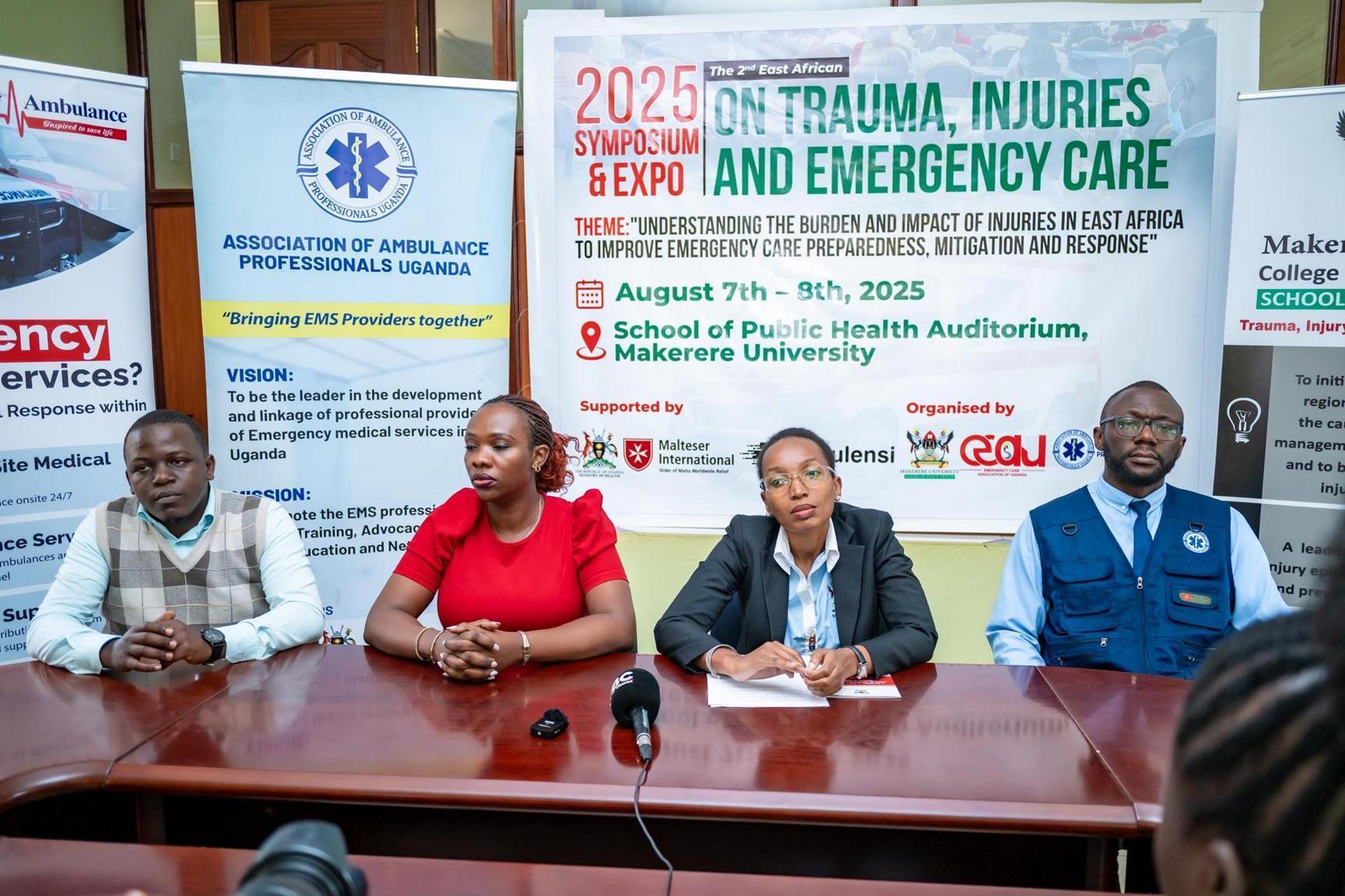Africa-Press – Uganda. Medical experts have called for concerted government and private efforts to impart knowledge and skills among the public to be able to provide emergency care services.
Speaking ahead of the second edition of the East African Symposium and Expo to spotlight trauma, injury, and emergency care response, Joseph Kalanzi, an emergency physician but also the secretary of the Association of Ambulance Professionals in Uganda (AAPU) said whereas situations that require emergency services are very common in Uganda, few people have the skills and knowledge to handle them.
“When an accident happens on the road, many chances are that the first responders are members of the public but on most occasions, they don’t have skills and knowledge about emergency care. They will not know what to do and who to call and many times, victims either die or get disability because of the poor emergency care they got at the accident scene,” Kalanzi said.
“We need to people with skills on how to offer emergency service when someone gets injured on the scene, on the road, how one is transported to the hospital to get care.”
Dr. Doreen Okong Alaleit, an emergency physician and the president of the Emergency Care Association of Uganda said it is high time the country found local solutions to local problems in terms of emergency care.
“Emergency care services should be defined by the local problems that we have as Ugandans, especially in regards to trauma that constitutes a huge burden of mortality for our basic Ugandans. We are losing mothers, fathers and children to trauma and injuries. We therefore need to have a conversation as a country in order to find solutions and a system that can work for the local person,” Dr.Okong said.
According to WHO (2019), more than 4.4 million people die from injuries annually, while over 50 million live with resulting disabilities which is nearly twice the global deaths from Tuberculosis, HIV/AIDS, and malaria combined.
In East Africa, injuries from road traffic crashes dominate emergency cases, contributing to an alarming rise in disability and mortality.
In light of this burden, each East African country is pursuing strategies aligned with Sustainable Development Goal 3, particularly the target to halve road traffic deaths by 2030. Yet, the region faces a growing trend, as highlighted by the Global Status Report on Road Safety 2023, which shows an increase in injury-related health issues on the continent, contrary to global declines.
According to Dr.Okong, there is need to train more people, especially in providing emergency care services.
She said whereas a lot has been done at policy level, more still needs to be done.
“A lot of work has been done in terms of training but a lot still needs to be done. We need to focus on training more people, give them the skills and competences. This should not only end at professionals but has to go down to the grassroot.”
“Imagine a person collapses on the road, how many people are able to give them first aid? There needs to be community-based first aid training at all levels including schools, markets and public facilities. This way we shall have skilled people to reduce the impact of trauma.”
The expo
According to Dr.Ignatius Asasira, the chairperson of the organizing committee, the second edition of the East African Symposium and Expo on Trauma, Injury, Disability, and Emergency Care organized by Makerere University School of Public Health, through its Trauma, Injury, and Disability (TRIAD) Unit, in partnership with the Emergency Care Association of Uganda (ECAU) and the Association of Ambulance Professionals Uganda (AAPU will be held at Makerere School of Public Health at the Makerere Main Campus in Kampala.
It will run from August 7 to 8.
“This two-day gathering will bring together emergency care experts, policymakers, educators, and stakeholders from public, private, and civil society sectors for dynamic discussions focused on strengthening trauma and emergency care systems across East Africa,” Dr.Asasira said.
“The symposium aims to critically assess current capabilities and gaps, identify region-specific challenges, and explore innovations that promote resilience and equity in emergency medical response.”
He noted that the emergency care expo will feature innovative technologies including aero-medical evacuation aircraft, advanced dispatch systems, and next-generation ambulances.
“Exhibitions will highlight the efforts of emergency care training institutions and service providers, showcasing the steps being taken to build a skilled and responsive workforce. Attendees will also hear powerful accounts from victims and survivors, offering a human perspective on the urgent need for robust emergency care systems.”
For More News And Analysis About Uganda Follow Africa-Press






